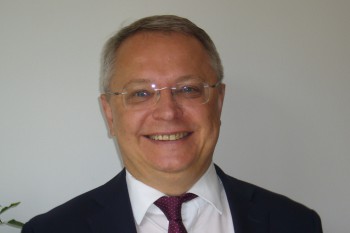Events
Strong Ties that Have Arisen from the Achievements of Diplomat Chiune Sugihara
—– In 1990, Lithuania became the first independent country among the republics of the Soviet Union. How has Lithuania tackled the rebuilding of the state since then?
The 20th century saw dramatic developments in Lithuanian history. During the almost 50 years occupied by the former Soviet Union, ours was an isolated nation deprived of free market economy, democracy, rule of law, or respect for human rights. Upon declaring our independence, we built a democratic political framework and made the transition to a free market economy, ending in 2004 with a membership in the EU and NATO. From 2014 to 2015, we were a non-permanent member of the U.N. Security Council, and we have contributed to the international community. Our efforts on transforming and modernizing our political, economic, and social systems progressed successfully, with the average economic growth rate of higher than 2.5% for the past five years, exceeding the average rate of the EU.
—– Would you describe the features of Lithuania, which is thelargest of the three Baltic republics?
Lithuania is a modern and flexible country. Because it is a small country, we are working on the development of a new and innovative technology industry that produces high added values. In the life sciences field, we are advanced in scientific lasers, which have a more than 10% share in the world, and in biotechnology. Japanese participants are the major guests at the biennial International Forum of the Life Sciences Baltics. Our superior infrastructure of the ICT sector provides the world’s fastest public WiFi service. We are also expanding the export of our traditional dairy and meat products. Another strength of our country is a high educational standard and excellent multilingual human resources. Our investment environment is going well, with European and American companies entering many of our business areas. In our seven free economic zones, foreign companies can build business facilities and enjoy the tax incentives.
—– The relationship between Lithuania and Japan became very close through humanitarian acts of diplomat Chiune Sugihara. How do you see the recent development of Japan-Lithuania relations?
In 1940, diplomat Chiune Sugihara issued Japanese transit visas to more than 6,000 Jewish refugees to save their lives. His great deed and mercy brought strong ties to both countries. Japan and Lithuania are in a very friendly and cooperative relationship in many areas. Last year, Lithuania’s export to Japan topped that to other Asian countries, and almost 25,000 Japanese people visited Lithuania. Scientific cooperation, as well as youth, culture, and sport exchanges are also active. Last year marked our 25th anniversary of the resumption of diplomatic relations, and many cultural events were held in both countries. We also deepened our relationship with Hiratsuka City, where the pre-games training camp for the 2020 Tokyo Olympic Games will be held.
—– As Ambassador to Japan, what are your priority agendas for further strengthening the bilateral ties?
The top item is to address the aging-society-related issues, which are common to both countries, by expanding our joint research and development efforts in the life sciences, healthcare, and medical fields. In October, a large mission led by our Minister of Health will visit Japan to participate in the BioJapan 2017 World Business Forum. The second item is an increase in the export to Japan of ICT, biotechnology, and other advanced technology products, agricultural products, and traditional products such as textile, as well as an increase in the import of high-quality products from Japan. In addition, human exchange is the foundation of diplomatic relations. As such, it is important to expand this exchange in tourism, youth exchange, culture, and sports cooperation.
—– How have the sanctions against Russia over the crisis of Ukraine affected your relations with Russia?
Although Russia and Lithuania have a close economic relationship, the trade volume has plummeted. We hope to have practical talks with Russia and continue trading with them. However, a lack of progress on Russia’s part is keeping the sanctions by the EU and other Western countries in place. To reduce our energy dependence on Russia, we are diversifying our energy supply sources in cooperation with the EU. In 2015, we built a liquefied natural gas plant. We are trading electric power with Sweden and Poland, and are establishing Rail Baltic, which runs from Helsinki to Warsaw via the three Baltic republics.
—– The U.K. decided to leave the EU. How will Brexit affect the Lithuania’s economy, and what do you think are its implications for the EU’s future?
For years and years, the U.K. has been an important partner in politics, economy, and defense and security issues. While it’s difficult to say how the Brexit negotiations will end up between the U.K. and the EU, or what kind of relationship both parties will have in the future, I hope that the post-Brexit U.K. will maintain a relationship with the EU as closely as possible. I am also concerned about the legal status of the 200,000 Lithuanian immigrants in the U.K. The EU is the best project in European history, and all EU citizens are enjoying freedom. Although I am not happy about Brexit, I believe the EU will remain its existence as a strong alliance. Complaints about the EU rules may trigger revisions in the rules, but frank discussion is needed. More than 80% of Lithuanians are pro-EU, strongly supporting the future of the EU.
